NEWSLETTER
Table of Contents:
A further two million euros to be invested in free Estonian studies in 2020
Integration Foundation to take part in discussions regarding integration plan
Registration for international integration conference still open
Support meetings for those returning to Estonia
Activity gathers pace at new Estonian Language House in Narva
Estonian Language House in Tallinn to adopt new language practice formats
Organisers of Estonian studies for adults in Tartu agree on closer cooperation
Did you ride the language train this September?
Training session on organising family stays
This year’s Citizens Day quiz to be held from 18-29 November
You can now find the Estonian Language House on Instagram
Meet the Integration Foundation’s new supervisory board member Kristi Vinter-Nemvalts: “I’ve been involved in integration at the grassroots level”
 Joining the Ministry of Education and Research as the Deputy Secretary General for General Education, Youth Affairs and Language Policy this August was Kristi Vinter-Nemvalts. With a doctorate in educational science, she spent many years lecturing at Tallinn University and headed up its Pedagogical College, Educational Policy Centre and School of Educational Sciences. In September she became the newest member of the supervisory board of the Integration Foundation. We asked her a few questions about integration and adult language studies.
Joining the Ministry of Education and Research as the Deputy Secretary General for General Education, Youth Affairs and Language Policy this August was Kristi Vinter-Nemvalts. With a doctorate in educational science, she spent many years lecturing at Tallinn University and headed up its Pedagogical College, Educational Policy Centre and School of Educational Sciences. In September she became the newest member of the supervisory board of the Integration Foundation. We asked her a few questions about integration and adult language studies.
What sort of involvement have you had in integration to date?
I used to work as the deputy director of a kindergarten on the teaching side of things and one year we decided we were going to familiarise all of our teachers with language immersion methodology so that they’d be able to support kids with mother tongues other than Estonian as professionally as possible. There were quite a lot of kids in our groups who spoke Russian or another language as their mother tongue, so it was only logical that our teachers should be given more support in organising their work in a multicultural setting. That’s something I was involved in very much at the grassroots level. I put together a project, that was funded by the Integration Foundation. It ended up being fun and really worthwhile, since we managed to ‘infect’ almost 25 teachers with the language immersion bug.
More recently, in my teaching and management roles at Tallinn University, I tried to steer integration so that the university had greater academic competence to support multiculturalism and kids with mother tongues other than Estonian in schools and kindergartens. We were there every step of the way when the curriculum was being planned, as it turned out. In the whole time I worked at the university there wasn’t a single year when integration as an issue wasn’t on the table. I’m pretty sure it’s made its way into all of the curricula at the School of Educational Sciences by now.
You joined the supervisory board of the Integration Foundation in September and no doubt you’re bringing a fresh eye to the assessment of its activities. How do you view its results so far, and what expectations do you have of it in the short term?
Its current activities are really broad-ranging, offering all sorts of language-learning opportunities, and that’s great. As a relative newcomer it’s hard to talk about different perspectives though. One thing I can say is that we definitely need to continue fostering cooperation and, indeed, integration between the Integration Foundation and the Ministry of Education and Research.
Where do you see the biggest challenges as lying?
Our ministry, the Integration Foundation and all the other partners and parties who have anything to do with the Estonian language studies for adults that were audited by the National Audit Office have to reach a point where all the lines converge and we all start marching to the beat of the same drum. We need to look back on what’s been done so far, what our future plans are, where they overlap, what it makes sense for us to do together, what it makes sense for us to delegate and then decide as one how we move forward. There are aspects of general education as well where the crossover points with integration should be reviewed and given more emphasis.
The Ministry of Education and Research has instigated strategic planning for the education, science, youth and language fields for the period from 2021-2035. How are integration and adult language studies reflected in that?
Integration will definitely make its way into the strategy documents for all of those fields. Kids, young people and adults who speak mother tongues other than Estonian are clearly the sort of target group all of those development plans will speak to. It’s only logical that the plan for the field of language will feature integration issues to a larger extent. Horizontal working groups were brought in when we were developing the education strategy, one of which was involved in the field of innovation and the other with integration. The aim of the steering group was to ensure that integration issues are included in every part of the education strategy. Strategic planning’s ongoing though and it’s too early to start quoting from the documents. But anyone interested can follow the drafting of the strategies on the website of the Ministry of Education and Research.
A further two million euros to be invested in free Estonian studies in 2020
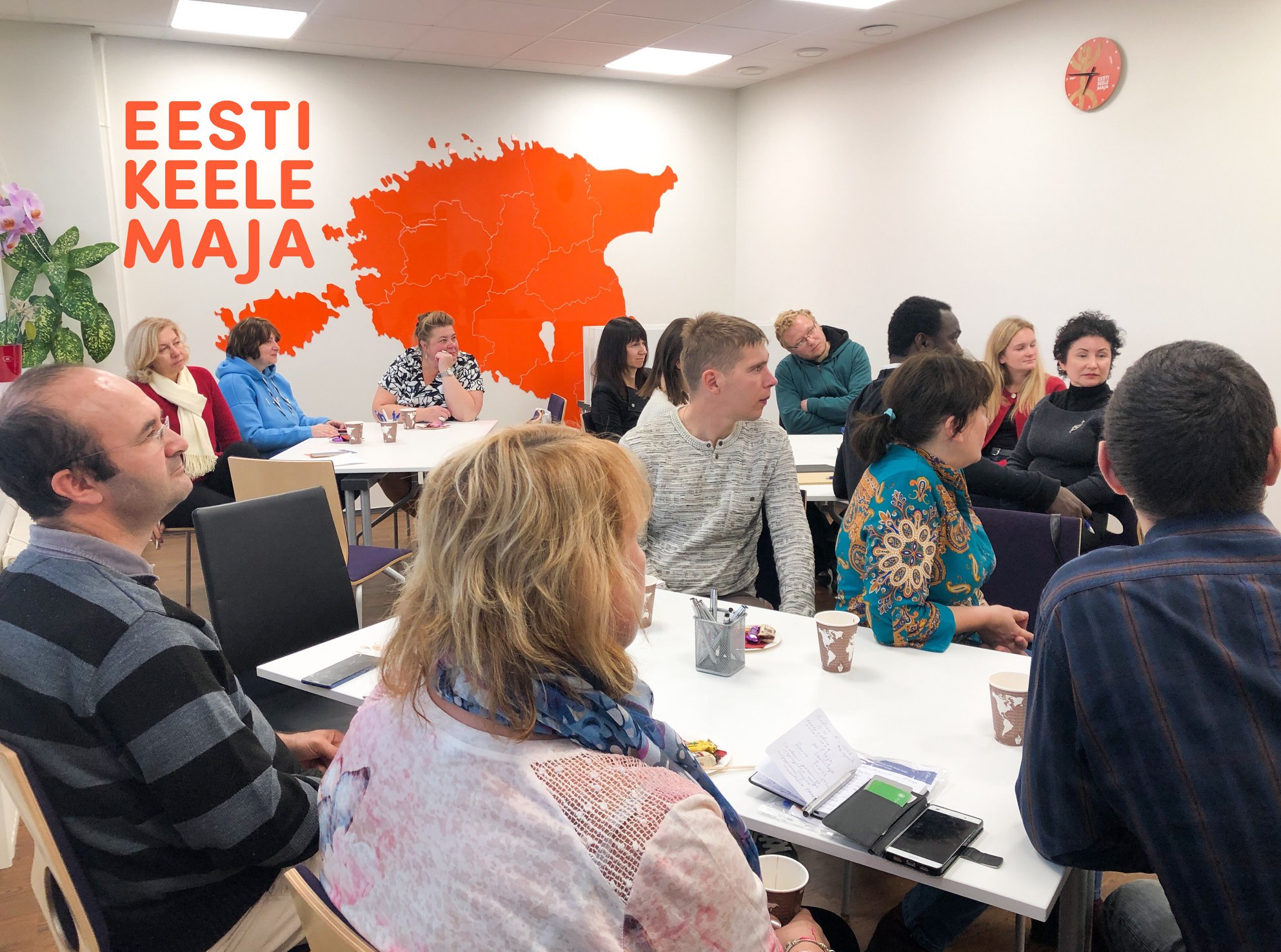 Estonia’s draft budget for the year ahead will see an additional two million euros allocated to the Ministry of Culture for the teaching of Estonian to adult learners. As a result, the Estonian Language Houses of the Integration Foundation will be able to offer free language courses to as many as 4000 participants.
Estonia’s draft budget for the year ahead will see an additional two million euros allocated to the Ministry of Culture for the teaching of Estonian to adult learners. As a result, the Estonian Language Houses of the Integration Foundation will be able to offer free language courses to as many as 4000 participants.
To date, the teaching of Estonian to adults has largely been financed from European Union funds, the proportion of which is set to decrease in 2020. Without additional funding the Integration Foundation would only be able to offer 1800 places in the year ahead, but with the extra allocation from the state budget it will be able to offer more than twice that number.
The foundation has been organising Estonian studies for adults since 1998, offering courses run by its own teachers and partners alike. In 2018 it opened its Estonian Language Houses in Tallinn and Narva in order to offer free courses more broadly throughout the country and to provide learners with the language environment they need.
Integration Foundation to take part in discussions regarding integration plan
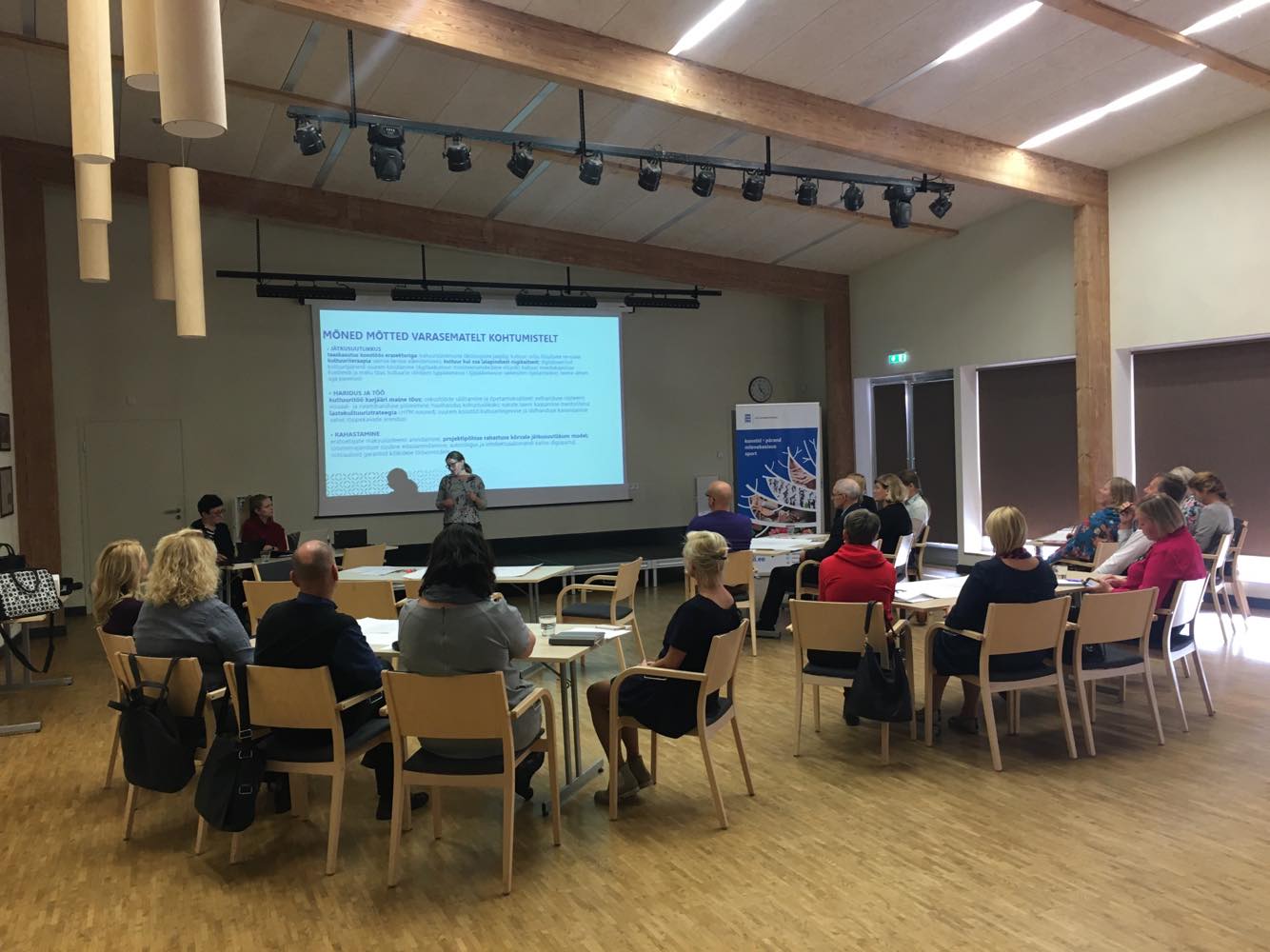 This autumn the Ministry of Culture is organising discussion events in every county in Estonia to review the material gathered to date for the drafting of the ‘Integrating Estonia 2030’ development plan.
This autumn the Ministry of Culture is organising discussion events in every county in Estonia to review the material gathered to date for the drafting of the ‘Integrating Estonia 2030’ development plan.
During the events, experts in the field of cultural diversity from the ministry will be providing an overview of the objectives of the integration plan and the directions it will take and gathering feedback and proposals from the participants regarding input so far.
Our own employees will be showcasing the activities of the Integration Foundation in preserving Estonian language and culture, supporting the other cultures represented in our country, organising Estonian language studies for adults and fostering contact between communities.
In addition to the integration plan, the Ministry of Culture will be gathering feedback at the events on the ‘Cornerstones of Cultural Policy to 2030’ development plan, which is currently being drafted.
Groups will discuss what needs to be highlighted in the fields of culture and integration from the point of view of each county and how to achieve objectives by working together.
The overall aim of the integration plan is to create conditions so that Estonian society can be truly integrated and socially cohesive and so that people from different cultural and linguistic backgrounds can play an active role in social life and share democratic values. For a more detailed overview of the process of drafting the integration plan, take a look at the website of the Ministry of Culture.
Registration for international integration conference still open
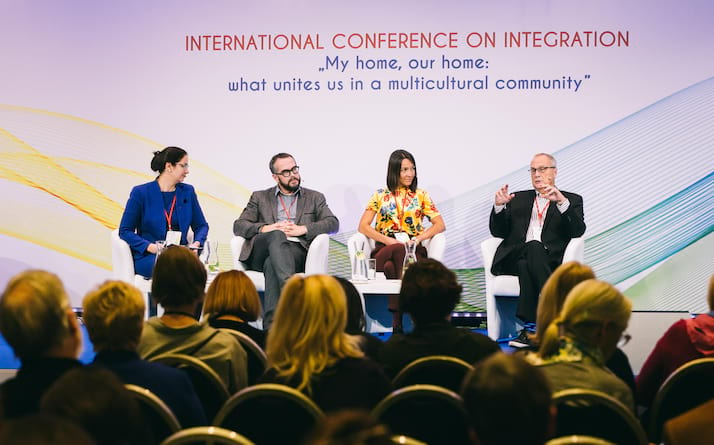 An international conference entitled ‘Shared Language: Integration through Multilingualism’ is being held in Tallinn on 14 & 15 November. The conference will bring together recognised experts from the United States, Canada, the United Kingdom, Latvia, Denmark, Norway, Germany and Estonia to explore identity, education and labour market issues in the light of multilingualism.
An international conference entitled ‘Shared Language: Integration through Multilingualism’ is being held in Tallinn on 14 & 15 November. The conference will bring together recognised experts from the United States, Canada, the United Kingdom, Latvia, Denmark, Norway, Germany and Estonia to explore identity, education and labour market issues in the light of multilingualism.
The two-day event will feature discussion panels and workshops in which experts, researchers, policy-shapers and participants will debate a range of topics, including family migration, adapting to a new living environment, integration plans, multilingualism, the loss of a person’s first language and how this can be prevented.
To view the programme and register for the conference, go to the event’s website. Attendance is free of charge but requires advance registration.
The guest speakers at the event will include:
- Keynote speaker | Copenhagen Business School emeritus professor Robert Phillipson, who has studied language policy, language rights and multilingual education;
- Czech Minister of Education, Youth and Sports Václav Velčovský, who will be giving a presentation on developments in Czech education policy in the light of multilingualism and inclusion principles;
- Head of the Department of Language and Linguistics of the University of Essex Monika S. Schmid, who has studied a range of aspects of the loss of a person’s first language;
- University of Edinburgh Professor of Developmental Linguistics Antonella Sorace, a world-renowned expert who has published papers in the field of multilingual language development that bring together methods used in linguistics, experimental psychology and cognitive science;
- Elin Thordardottir, an expert with the School of Communication Sciences and Disorders of McGill University and the head of research laboratories in both Montréal and Iceland whose research focusses on such topics as the normal acquisition of language and language disorders among children who speak one or more languages;
-
University of Konstanz and University of Reading Professor of Multilingualism Theo Marinis, who studies multilingualism, multiliteracy and the acquisition of language among students with typical and atypical development and leads the EU project ‘Multilingual Mind’.
This is the fourth consecutive conference of its kind being organised by the Integration Foundation in Tallinn. This year it is being held at the Radisson Blu Hotel Olümpia (Liivalaia 33, Tallinn).
The working language of the conference will be English, with simultaneous interpreting into Estonian and Russian.
The event is being run by the Integration Foundation in cooperation with the Ministry of Culture. Also supporting the organisation of the conference are the embassies of the United States, Finland, Germany, Canada, the United Kingdom and the Czech Republic in Estonia, the British Council and other partners.
For further information please contact:
Anastassia Tuuder
Head of Research
Integration Foundation
Mobile: +372 659 9853
E-mail: anastassia.tuuder@integratsioon.ee
Support meetings for those returning to Estonia
 This October the Integration Foundation launched a series of meetings for those who have returned to Estonia from living abroad in order to help them better cope with life in the country and make contact with others going through the same experience. The meetings will continue in November and December.
This October the Integration Foundation launched a series of meetings for those who have returned to Estonia from living abroad in order to help them better cope with life in the country and make contact with others going through the same experience. The meetings will continue in November and December.
During the meetings the attendees get to hear how others who have returned to Estonia are coping with being back in the country, share their own experiences and concerns and obtain useful information and support in better organising their lives. The meetings are run by experienced trainers and consultants. Taking part in all of the meetings is the Integration Foundation’s adviser Kaire Cocker. Attendance is free of charge.
“The first support meeting in Tallinn was a big success,” Cocker said. “Everyone was really willing to share their own stories and feelings and advice on how you can better organise your life in Estonia, from looking for work to keeping calm in the midst of such a big change. There was plenty of food for thought for everyone on coping more effectively, and plenty of support that they made the right decision in coming back to the country. We’re really happy that through these meetings we’re able to help people who’ve returned to Estonia feel more at home here and to create a support network for them. We’re looking forward to newcomers attending our get-togethers in November and December as well.”
The meetings are being held in four groups: two in Tallinn, one in Viimsi and one in Haapsalu. The next meetings in the series will take place next month. The latest information about the get-togethers is going to be posted on the website of the Integration Foundation and on Facebook.
The Integration Foundation advises those who are interested in or planning to return to Estonia as well as those who have already started their new lives in the country. This involves providing practical information and dealing with issues related to adapting to life in the country. To attend a consultation, contact Kaire Cocker by e-mailing tagasieestisse@integratsioon.ee or calling +372 5364 4172.
Information and cooperation specialist joins Integration Foundation to strengthen ties between Estonian communities worldwide
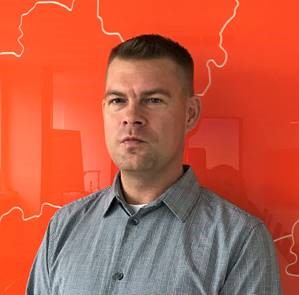 Joining the Integration Foundation at the start of October as an information and cooperation specialist was Tarmo Saks.
Joining the Integration Foundation at the start of October as an information and cooperation specialist was Tarmo Saks.
Tarmo’s main role is to support Estonians working together worldwide by creating a shared information space and organising the exchange of information with Estonians living outside of Estonia.
As specialist, Tarmo will map the information and communication channels used by fellow countrymen; create an information portal to share the activities of diaspora communities abroad in order to foster global networks; and support the maintenance of ties between Estonians living outside of Estonia and the country itself with the goal of preserving and promoting Estonian language and culture worldwide.
Tarmo was himself born and raised outside of Estonia and spent many years actively promoting all things Estonian before moving to the country a few years ago and taking up permanent residence here.
You can contact Tarmo by e-mailing tarmo.saks@integratsioon.ee.
Activity gathers pace at new Estonian Language House in Narva
 Since 1 October 2019 the main office of the Integration Foundation in Narva and its Estonian Language House have been operating out of new premises at Linda 2 in the heart of the city – and more and more projects related to Estonian language studies and practice are being launched there.
Since 1 October 2019 the main office of the Integration Foundation in Narva and its Estonian Language House have been operating out of new premises at Linda 2 in the heart of the city – and more and more projects related to Estonian language studies and practice are being launched there.
“Moving the Integration Foundation to Narva has brought the state closer to the residents of Ida-Viru County,” said the foundation’s director Irene Käosaar at the opening of the Estonian Language House. “We’ve created 20 new jobs and we’re setting the best possible example of the state’s openness for the people who live here.”
This is also reflected in the fact that while the Estonian Language House had been operating on temporary premises in Narva since September last year, since this autumn language consultations and events designed for people to learn and practise Estonian have also been held in Sillamäe and Kohtla-Järve.
“Autumn got off to a busy start for us,” said Margarita Källo, the director of the Estonian Language House in Narva. “We’ve launched Estonian classes for eight new groups, we stoked the engine on the Estonian language train for the first time in September, we’ve initiated a number of new workshops – such as table etiquette, ‘language watchers’ and games nights – and we’re continuing with tandem studies, our language cafés, film nights and study trips, which have already proven very popular.”
 Projects being launched in the near future include a heritage culture study programme for language immersion teachers from and the directors of kindergartens in Narva, which will start at the end of October. As part of the programme, the participants will familiarise themselves with the work of kindergartens in Pärnu and take part in a combined seminar and work experience event to learn about Estonian folk culture and pass that information on to their own charges. They will find out about old traditions, rituals and beliefs as well as folk music, songs and song-based games. The study programme is being organised by the Estonian Folk Culture Centre.
Projects being launched in the near future include a heritage culture study programme for language immersion teachers from and the directors of kindergartens in Narva, which will start at the end of October. As part of the programme, the participants will familiarise themselves with the work of kindergartens in Pärnu and take part in a combined seminar and work experience event to learn about Estonian folk culture and pass that information on to their own charges. They will find out about old traditions, rituals and beliefs as well as folk music, songs and song-based games. The study programme is being organised by the Estonian Folk Culture Centre.
The Estonian Language House at Linda 2 in Narva is open to visitors from Monday to Friday. You can contact the centre by e-mailing eestikeelemaja@integratsioon.ee or calling +372 659 9030.
You can keep track of what is happening at the Estonian Language House in Narva via Facebook page and Instagram page (@eestikeelemaja).
Estonian Language House in Tallinn to adopt new language practice formats
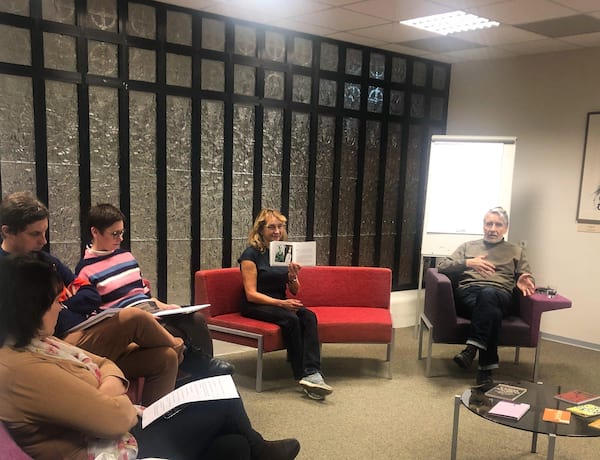 The 2019/2020 academic year has so far seen 14 groups taking up studies at the Estonian Language House in Tallinn, which is almost twice as many as in the same period last year. In addition to language courses, a number of events are held each week to allow participants to practise their Estonian. One new way of doing so is the Book Club, while another is a fun form of language practice that has been launched in a local club in cooperation with the Kalamaja community.
The 2019/2020 academic year has so far seen 14 groups taking up studies at the Estonian Language House in Tallinn, which is almost twice as many as in the same period last year. In addition to language courses, a number of events are held each week to allow participants to practise their Estonian. One new way of doing so is the Book Club, while another is a fun form of language practice that has been launched in a local club in cooperation with the Kalamaja community.
More than 200 people are currently learning Estonian at the A1, A2 and B1 levels at the Estonian Language House in Tallinn, 70 of whom are continuing their studies. “We got a lot of positive feedback on last year’s courses,” said Aljona Kordontšuk, the director of the Estonian Language House in Tallinn. “The number of people continuing their studies with us this year shows they like it here and that they’ve really thrown themselves into learning the language.”
Since the guiding principle at the Estonian Language Houses is that language-learning is fun and engaging, new ways are always being sought of diversifying Estonian studies and practice. One new way which was launched this autumn at the centre in Tallinn in cooperation with the National Library of Estonia is the Book Club, in which the participants read the works of Estonian authors and then share their thoughts. “Wherever possible we invite the authors themselves along, too,” Kordontšuk explained. “That way the participants have the chance to directly share their thoughts with the writer on their work and on life in general. It’s an opportunity very few people get.”
At the request of those interested in Estonian who live in Kalamaja, the Estonian Language House in Tallinn launched a fun new form of language studies in October based at the Heldekese Club. “We’re very open to initiatives from people interested in learning Estonian, and if there’s demand for our activities then of course we’ll do our best to offer them,” Kordontšuk said. “At the Heldekese Club we get together of an evening with representatives of the local community and play a game in Estonian that we came up – a sort of mash-up of a memory game and a quiz. People from other parts of Tallinn are welcome to take part as well, especially those who appreciate a more playful approach to learning.”
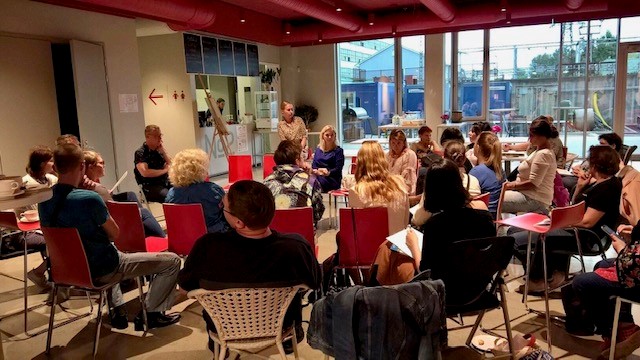 This year the Estonian Language House in Tallinn has launched cooperation with the Estonian Film Institute, whose support has given learners the chance to watch a range of classic Estonian films.
This year the Estonian Language House in Tallinn has launched cooperation with the Estonian Film Institute, whose support has given learners the chance to watch a range of classic Estonian films.
Attendees of one of this autumn’s language cafés were delighted to discover that the special guest was director and actor Raivo Trass. They described the get-together as a true theatre experience. In addition to discussing his creative journey and achievements, Trass gave a reading of the works of Estonian poets Jaan Kaplinski and Paul-Eerik Rummo.
“A number of events are held at the Estonian Language House each week at which everyone interested can practise their Estonian in some shape or form,” Kordontšuk explained. “There’s a format to suit everyone, whether it’s tandem studies, our forum theatre course, the Book Club, our film and games nights or our workshop on local media. All of these take place during the evening, so they’re perfect for those who work during the day.”
You can keep track of what is happening at the Estonian Language House in Tallinn via Facebook page and Instagram page (@eestikeelemaja).
Organisers of Estonian studies for adults in Tartu agree on closer cooperation
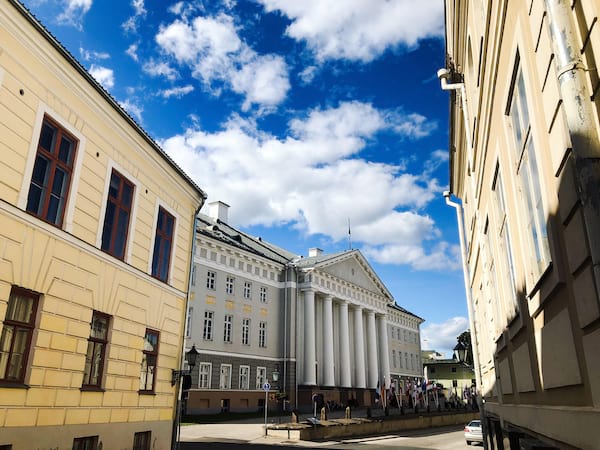
Representatives of the Integration Foundation, the Estonian Language House in Tallinn, the Ministry of Education and Research, the Estonian National Museum, Tartu Folk High School, the Unemployment Insurance Fund, the College of Foreign Languages and Cultures of the University of Tartu, the Department of Education of Tartu City Government and the NPOs Tartu International House, Folkuniversitet Estonia and Tartu Service Centre for Foreigners gathered in Tartu in October to discuss cooperation opportunities in the field of Estonian studies for adults in the city. The participants agreed at the meeting that they would more frequently exchange information and share the details of one another’s services with target groups.
The aim of the gathering was to amass information on the Estonian language studies for adults taking place in Tartu, to analyse their scope and how much they are needed by target group and to agree on further cooperation.
“We’re happy to be able to say that a range of agencies and organisations in Tartu offer opportunities for adults to learn and practise Estonian in a wide variety of ways, from language courses to cafés and study programmes,” said Integration Foundation director Irene Käosaar. “Our aim at the foundation is to offer Estonian studies and activities promoting the use of Estonian that are as diverse as possible, all over the country, and we’ve been doing that in Tartu for years now. We agreed with our partners that we’ll work even more closely together and share more information so as to better support one another in organising the language studies we offer.”
Did you ride the language train this September?
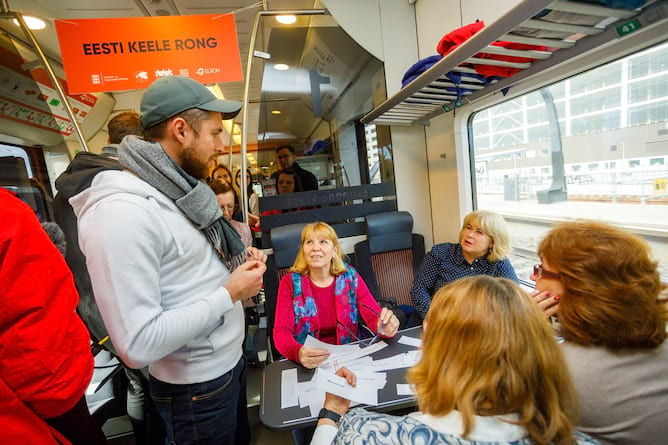 It was all aboard the language train from 24-26 September, when passengers between Tallinn and Narva had the opportunity to study Estonian free of charge. Language games and exercises were led in a special carriage by teachers from the Estonian Language Houses in Tallinn and Narva. During the journeys, anyone interested had the chance to talk to a language consultant, send their friends a language train postcard and listen to podcasts.
It was all aboard the language train from 24-26 September, when passengers between Tallinn and Narva had the opportunity to study Estonian free of charge. Language games and exercises were led in a special carriage by teachers from the Estonian Language Houses in Tallinn and Narva. During the journeys, anyone interested had the chance to talk to a language consultant, send their friends a language train postcard and listen to podcasts.
“There’s no doubt in my mind that those who got off the train having ridden in our carriage did so with more confidence to use the language,” said Margarita Källo, the director of the Integration Foundation’s Estonian Language House in Narva. “We hope we inspired them to continue learning the language, on the train and in other settings outside the classroom, because language is something you can use everywhere.”
The active methods employed on board to learn and practise Estonian are used on an everyday basis at the Estonian Language Houses in Tallinn and Narva. In addition to language courses at different levels, skills can be honed at the centres as part of tandem studies, language cafés, film and games nights, the Book Club and workshops on everything from cooking to table etiquette. All of these activities are free of charge.
The Estonian-language train was the brainchild of the Ministry of Education and Research, the Integration Foundation and Elron. It was designed to celebrate the Year of Estonian Language and the international Estonian Language Week marked at the end of September.
Training session on organising family stays
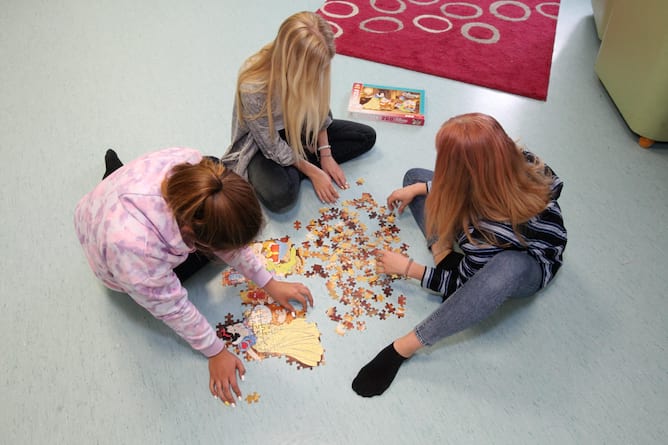
On 21 November the Integration Foundation is holding a training session for NPOs and anyone else interested at which the focus will be on the organisation of Estonian language studies as part of family stays. The session will also be of help in drafting applications for activity support. The next round of applications for such support is planned to be launched by the foundation in early 2020.
The free training session will take place at 09:00 on Thursday 21 November at Rävala pst 5, Tallinn (6th floor). Register for the event by e-mailing jana.tondi@integratsioon.ee by 10 November. The number of places is limited.
“To date, around 80-100 youngsters have been able to take part in family stays each year, but the number who’ve applied has been a lot higher than that,” said Jana Tondi, the Head of Language and Cultural Immersion of the Integration Foundation. “That’s why we’re planning to offer more places next year. Our aim is to get more kids aged 7-19 who speak other languages as their mother tongue to stay with Estonian families and learn about Estonia’s language and culture, recruiting more organisers and host families in the process.”
At the training session the Integration Foundation will be outlining the objective of awarding activity support for Estonian language studies in families, the conditions attached, the accompanying tasks and the requirements of both project managers and the host families. An experienced organiser of family stays will also be sharing their practical experience and advice on how to find participants and families, how to plan your time and joint events, what to take into account with catering, how to talk to parents and what to be guided by in putting together a budget.
At the end of the event the participants will be given a tour of the Estonian Language House in Tallinn and find out what goes on there.
In recent years, family stays have been organised by the NPOs ‘Veeda vaheaeg Võrumaal’ and ‘Volonta’ in Võru County and by the NPO ‘Lapsele Oma Kodu’ in Räpina.
The basis of the application round for support for family stay partner organisations is regulation no. 11 of the Minister of Culture of 3 April 2019 ‘Terms and conditions of and procedure for support of family stay partner organisations’.
This year’s Citizens Day quiz to be held from 18-29 November
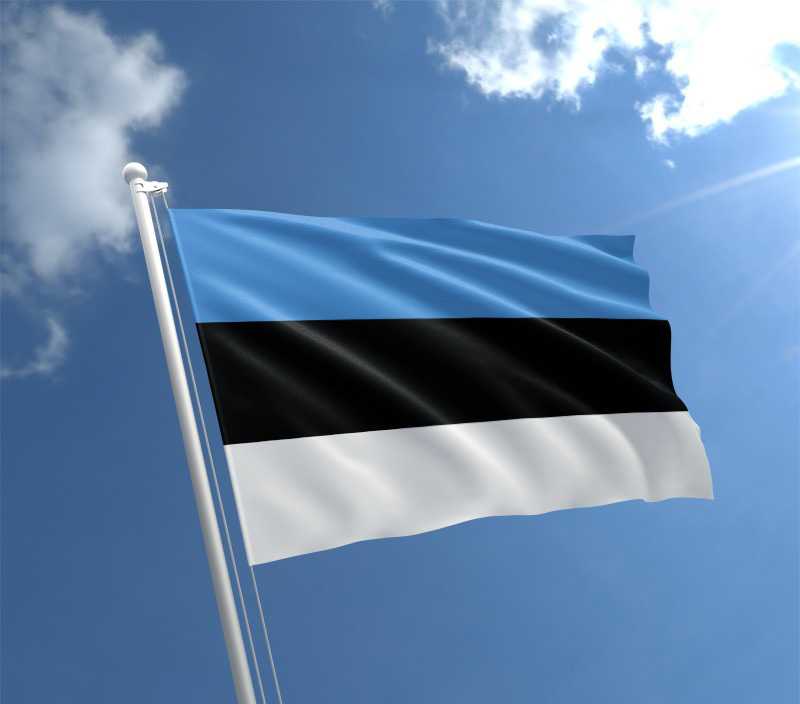 Citizens Day is marked on 26 November, and this year the Integration Foundation is once again organising an exciting online quiz about Estonia’s recent past in honour of the occasion. It will be taking place from 18-29 November, with a focus on interesting events and life in Estonia.
Citizens Day is marked on 26 November, and this year the Integration Foundation is once again organising an exciting online quiz about Estonia’s recent past in honour of the occasion. It will be taking place from 18-29 November, with a focus on interesting events and life in Estonia.
The quiz can be taken on the Integration Foundation website. It will comprise 50 questions in Estonian, with a time limit of 60 minutes. The questions will go live on 18 November.
Everyone who takes the quiz will be able to view the results, should they wish to, via a link e-mailed to them on 30 November 2019.
The Integration Foundation is arranging the quiz for the 17th time this year.
Organisation of the Citizens Day online quiz is supported by the Ministry of Culture.
Upcoming competitions
Over the next few months the Integration Foundation will be launching the following competitions:
- ‘Estonian language and culture clubs’ (public procurement to be launched in October)
- ‘Preparatory training for citizenship examination 2020-2022’ (public procurement to be launched in November)
-
‘Group management training for leaders of Estonian language and culture clubs’ (public procurement to be launched in November)
Information about competitions that have been launched is published on the website of the Integration Foundation at www.integratsioon.ee/konkursid.
You can now find the Estonian Language House on Instagram
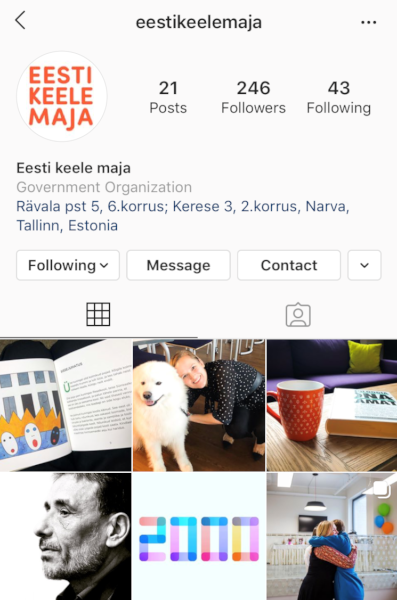 Events at the Estonian Language Houses in Tallinn and Narva can now be followed on Instagram (@eestikeelemaja).
Events at the Estonian Language Houses in Tallinn and Narva can now be followed on Instagram (@eestikeelemaja).
You can also keep up to date on our activities via our Facebook page.
Integration Calendar
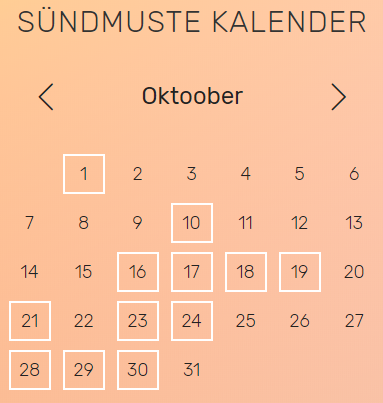 You can choose events which are organised, assisted or supported by our Foundation to participate in October and November at the website event calendar.
You can choose events which are organised, assisted or supported by our Foundation to participate in October and November at the website event calendar.
News
You can read the latest announcements of our Foundation at our website, Facebook accounts of Integration Faoundation or House of Estonian Language.
